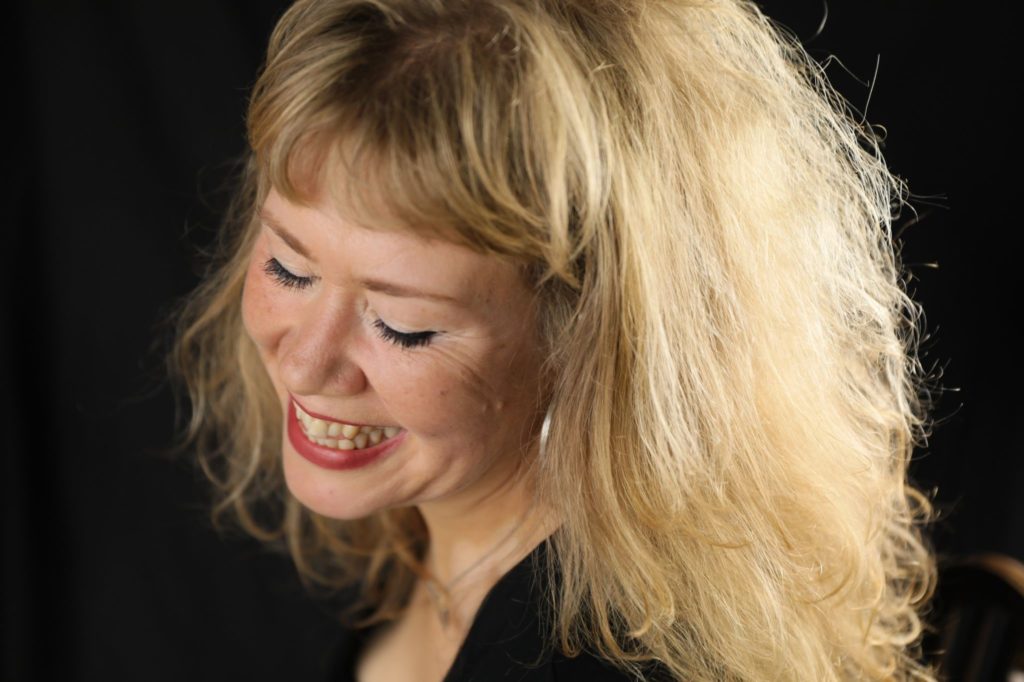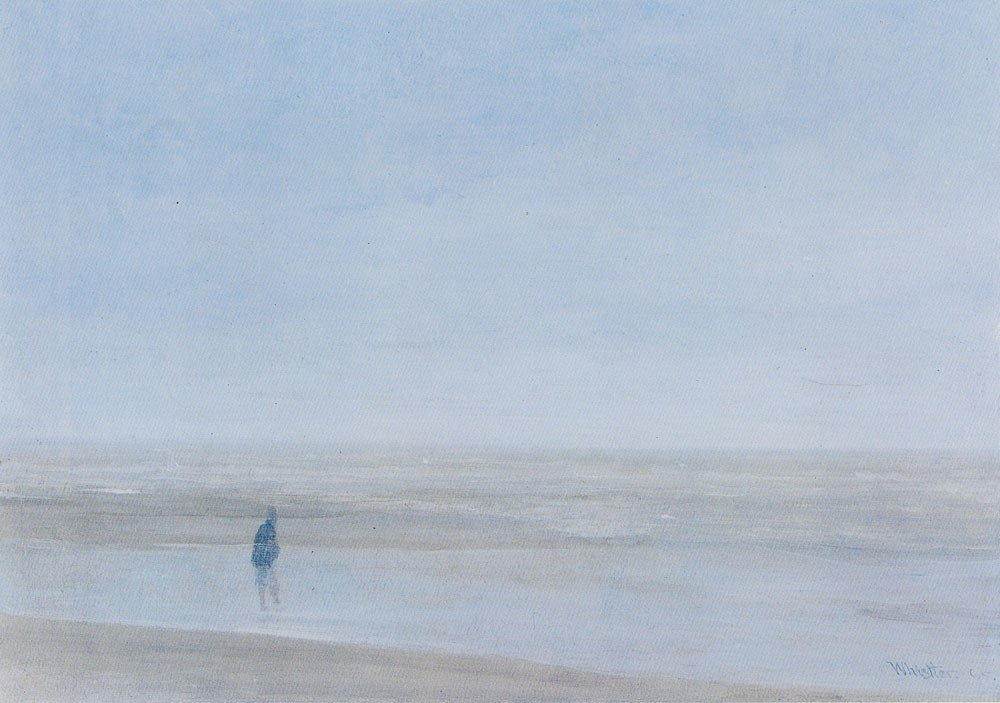An introduction to Zoë Martlew’s ‘Atma’
Feature
On Sat 11 Dec, leading composer and clarinettist Mark Simpson performs a programme of clarinet and electronics/loops featuring world premieres, including Atma by Zoë Martlew and Volvelles by Phillip Cashian, and contemporary classics by Steve Reich and Jonathan Harvey. Ahead of the concert, Benjamin Poore introduces Martlew’s poignant piece.

Zoë Martlew, Atma
For amplified solo Bb Clarinet & soundtrack
When she was commissioned to write a solo work for Mark Simpson, Zoë Martlew’s first thought was to write a spectacular virtuoso number, showcasing Simpson’s technical brilliance and charisma. “But when it came to writing it”, Martlew told me over Zoom, “the blazing showstopper I had in mind simply wasn’t there. Something completely different and unexpected emerged.”
She lives on the East Sussex coast in St. Leonards-on-Sea. One day, at the height of lockdown, “at a time when I didn’t want to play, write or even listen to music,” she walked along the deserted beach as it was snowing.
“There was this unearthly silence upon silence: snow falling into an almost-motionless sea.” She got out her microphone to record the phenomenon. After, she overlaid the sound of her own breath on the sound of the sea. This forms the basis of the sound world from which the clarinet’s voice emerges.
The scene reminded her of a Whistler painting, Sea and Rain (1865.) Whistler’s mother lived nearby, Martlew tells me, “so he would’ve known this coastline”. (As it happens, Claude Debussy completed La Mer in nearby Eastbourne.) In Whistler’s painting a distant figure stands at the shore, looking out. They appear semi-transparently as if caught phasing in and out of existence, or beaming up to some interstellar plane.
Atma flows from this profound inner stillness. Its waves of intensity gather and explode; they come to rest in a songlike meditation of intense expressivity, human and fragile, a passage marked in the score with the instruction “with infinite tenderness”. As with Martlew’s wintry meeting of coastal ice, water, and mist, its various states transmute into an “expansive, higher-dimensional realm…a new kind of stillness.”

Atma, or Ātman, is a Sanskrit word that means ‘breath,’ ’soul’ or ‘essence’. In many traditions breathing implies more than something crudely mechanical – it is synonymous with a divine dimension of being. In the Gospel of John, Christ “breathes” the Holy Spirit into his disciples; they are literally inspired.
Martlew’s piece is an encounter with the physical and spiritual dimensions of breath. This is especially poignant – even uncomfortable – in the context of the pandemic, where the breath of others was an invisible, infectious threat, mitigated by masks and two-meter gaps. The virus meant that many died fighting for breath; the persistent symptoms of ‘long’ Covid include breathlessness – with its attendant anxiety.
Martlew’s Atma takes us back to breathing in various forms. It begins with only the sound of air, pitch emerging almost imperceptibly. ‘Breath marks’ in the score indicate where extra time should be taken, to create an irregular pulse. It is a piece in which breath has its own time.
The textures and timbres of the breath appear variously. One section calls for a ‘pitchless air sound, like breathing’, which moves into audible whispers, channeled through the amplified clarinet. Those familiar with the work of Samuel Beckett might recall the Irish playwright’s micro-drama Breath, under a minute in length; it illuminates and shrouds a single recorded inhalation and exhalation.
This airflow is given primitive form in the final section of the piece by faltering, simple syllables that emerge in the final section of the work as a new kind of language – which also have encoded in them ancient mantras. It represents, for Martlew, the coming into being of a new way of thinking and living after the pandemic: “as though this voice has to start a new language”.
An ethereal middle section of melodic restraint centers the work’s inwardness – one that is still but also quietly animated, like the shimmering surface tension of a glass of water filled to the very brim. The cosmic and the divine are keenly felt in the recorded sounds that work alongside Simpson’s clarinet. There are gongs and singing bowls, which have a ritualistic and processional quality. “There is a sort of rhythm even within their stillness”, Martlew says of the singing bowls, whose sound has the quality of infinity.
BENJAMIN POORE